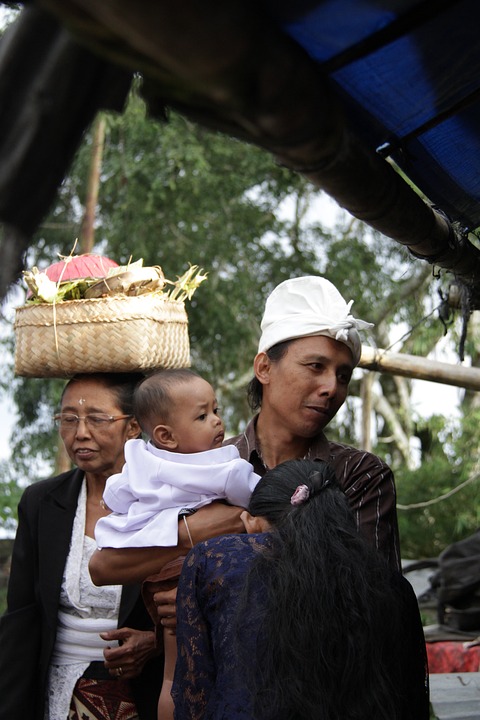Bali, often dubbed the Island of the Gods, is a cultural epicenter that captivates visitors with its stunning landscapes, lush rice terraces, and an array of temples and traditional villages that reflect the rich heritage of the Indonesian island. For travelers seeking to explore the depths of Balinese culture, delving into its temples and traditional villages provides a profound understanding of the island’s spiritual and community life.
The Balinese temples, known as “pura,” are not merely places of worship; they are the heartbeat of Balinese society, embodying the island’s unique blend of Hindu beliefs, local customs, and artistic expression. One of the most renowned temples is Uluwatu Temple (Pura Luhur Uluwatu), perched majestically on a cliff overlooking the Indian Ocean. This temple, dedicated to the spirits of the sea, is not only a sacred place for reflection and rituals but also an iconic landmark where visitors can witness mesmerizing Kecak dance performances at sunset. The surrounding landscape enhances the spiritual experience, with panoramic views that reflect the island’s natural beauty.
Another remarkable temple is Besakih Temple, often referred to as the “Mother Temple” of Bali. Situated on the slopes of Mount Agung, the highest mountain in Bali, Besakih is a complex of several temples that hold great significance in Balinese Hinduism. It serves as a pilgrimage site for the locals and a must-visit for tourists eager to engage with local customs. The numerous ceremonies and festivals conducted here underline the integral role of spirituality in everyday Balinese life, making a visit to Besakih a profound cultural encounter.
Beyond the magnificent temples, Bali is dotted with traditional villages where time seems to stand still, encapsulating the island’s vibrant cultural landscape. A visit to the village of Ubud reveals an artisan community that thrives on traditional crafts, such as painting, woodworking, and textiles. Ubud’s bustling market and serene surroundings offer a glimpse into the local way of life, allowing visitors to appreciate the deep-rooted artistic traditions that have been preserved over generations. Tourists can engage with artisans, learn about their craft, and even participate in workshops, thereby gaining insight into the rich cultural fabric of Bali.
Another essential destination is the village of Tenganan. Recognized for its strong adherence to ancient customs, Tenganan is one of the few remaining “original Balinese” villages that has preserved its traditional way of life, distinguishing itself with rules and a community-centric approach. The villagers engage in unique rituals, such as the remarkable “Pandanus War” festival, wherein participants clad in traditional garments engage in playful combat using woven pandanus leaves. This village represents an unfiltered experience of Balinese culture, offering an authentic glimpse into the island’s historical roots.
Participating in local traditions expands the cultural journey in Bali. Visitors are encouraged to join temples’ ceremonies, such as the Galungan festival, which symbolizes the victory of good over evil. During this time, the streets come alive with elaborate offerings, vibrant decorations, and local rituals that invite tourists to engage respectfully with Balinese spirituality. Understanding the cultural significance behind these traditions highlights the island’s vibrant spiritual tapestry and deep-seated values.
Culinary experiences also play a crucial role in exploring Bali’s cultural landscape. The traditional Balinese cuisine reflects an amalgamation of local ingredients, vibrant spices, and culinary techniques passed down through generations. Dishes such as Nasi Goreng, Babi Guling (suckling pig), and Ayam Betutu (slow-cooked chicken) are not only delicious but steeped in cultural significance, often prepared during festivities and communal gatherings. Engaging with the local food scene provides another layer to understanding Bali’s cultural identity.
In conclusion, Bali’s temples and traditional villages are vital to the island’s cultural wonders. The intricate relationship between spirituality, artistry, and community life is evident in the island’s sacred sites and local customs. As travelers explore these cultural wonders, they are invited to participate in a transformative journey that honors Bali’s rich heritage and continues to inspire awe and respect for this remarkable destination. This exploration fosters a deeper appreciation of Bali, inviting visitors to return home with not just memories but a newfound understanding of this enchanting island’s soul.
